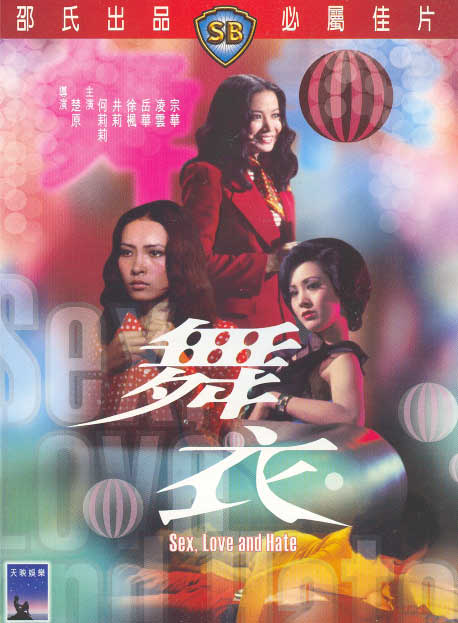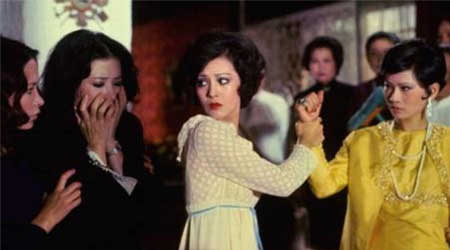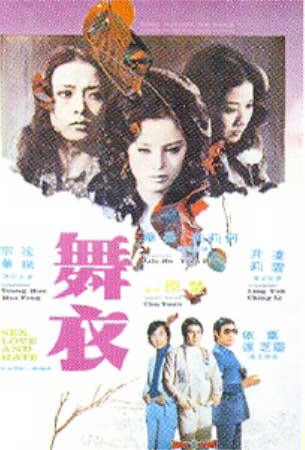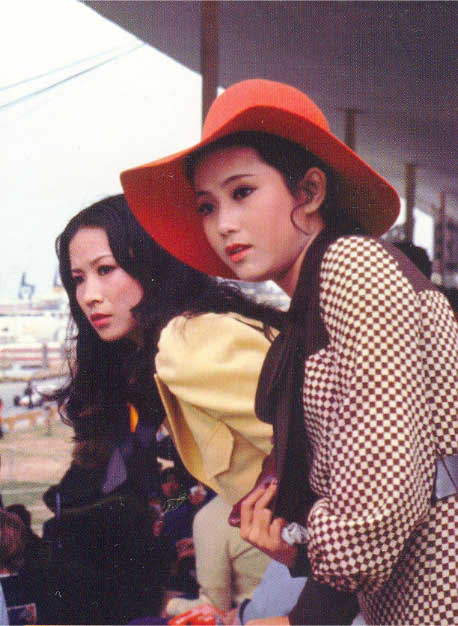Sex, Love and Hate

Director: Chor Yuen
Year: 1974
Rating: 6.5
At one point the
character Bai Mei mournfully declares “Why is it always like this in love”.
Love is basically a cruel smack in the face in this melodramatic torch song
of a film where nothing good can from it. In a break from his usual duties
as Shaw’s premier wuxia director, Chor Yuen goes downstream to mine our emotions
in this film that seems to be attempting to emulate the Taiwanese weepies
that were so popular at the time, but he adds a lot more gloss, glitz and
glamour Hong Kong style. Still the film contains the requisite sunsets, sad
goodbyes, flashbacks to happier times, syrupy ballads and tears that the
Taiwanese weepies were such masters of. The narrative tracks three women
and their head nose dive into romance and despair. It may sound misogynistic
but there is a fair amount of pleasure watching the likes of Lily Ho, Ching
Li and Hsu Feng having their hearts broken. There is just a certain innate
beauty there.

Bai Mei is a nightclub chanteuse nightly
singing (dubbed by Francis Yip) of lost love with lyrics like “When I woke
up this morning you were gone. There is nothing except tear stains” or “Is
true love so hard to meet?”, but in her life she has no intention of falling
victim to true love – “only money matters in this world” as she has a house
(all bright blues and reds interior) paid for by one elderly wealthy man and
a line of suitors all vetted for their financial prowess. She takes on two
boarders – Yao Yao (Hsu Feng) who has run away from home because her parents
are trying to pressure her into marrying a rich man, but she is in love with
a poor one (Chung Wa) – and Zhu Dai (Ching Li) who is recovering from an
affair with a married man. A home invasion by the wife of the married man
and her many cronies is stopped in its tracks by Bai Mei who shows her toughness
by cracking a few heads and ripping off the blouse of the vengeful wife.
Lily Ho does a good job here – leaving all her typical softness behind with
a brittle and lacquered veneer that hides a heart of gold behind it.

All three women are soon to head down the highway of heartbreak. Bai Mei
jumps off her track record of only going out with rich men when she meets
Lu Jun (Yuen Hua) who seems to be involved in some shady business. In fact
he is a revolutionary (of what isn’t exactly clear) trying to buy arms for
the struggle and fending off a gang trying to stop him. She begins to fall
in love and tells him as he goes off on one more mission “I will wait for
you my entire life”. Zhu Dai has her car stall and is assisted by Du Zhichao
(Ling Yun) who turns out to be a professional race car driver and they begin
to fall in love – but I always say beware of men who decorate their home
with trophies and a giant picture of themselves on the wall. Yao Yao continues
to love her poor man and to maintain her virginity, but some roughhouse tactics
against him and his mom (Ouyang Shafei) from her family who want her to marry
well begins to pressure the couple to go their separate ways.
Much of this is too downbeat for its own
good and it is so saturated in tragedy that it’s a bit hard to take it seriously
or get emotionally involved. What is great is simply seeing these three actresses
work together - all three were big stars at the time and they shine with
style and good fashions here. In particular it is a surprise and pleasure
to come across Hsu Feng in a Shaw Brother’s production. She is simply magnificent
in her roles in King Hu films (Dragon Inn, Valiant Ones, Touch of Zen), but
I had no idea she had ever appeared in a Shaw film – and it was lovely seeing
her without a sword in her hand for a change! Does anyone know if she was
in any other Shaw films?





